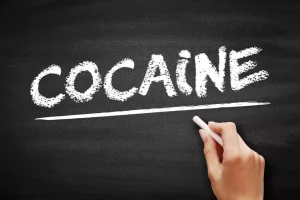
These groups offer peer mentoring relationships where each member encourages and strengthens the other based on shared experience battling addictions. Let’s dive into Professional Treatment Options for Shame and Guilt -because healing requires support beyond one’s own effort. When you are surrounded by a supportive network of people, it becomes guilt and shame in recovery easier to share your struggles and receive empathy and encouragement in return. This sense of belongingness makes it easier for individuals to come out of their shells and break out of the cycle of self-blame and guilt that often accompanies addiction. Shame is considered a “self-conscious emotion” by many mental health professionals.

Addiction Treatment Services
However now we know that they play a valuable role in creating emotional balance. Incorporating Cognitive Behavioral Therapy (CBT) for Shame and Guilt into your treatment plan can help you develop strategies to cope with this difficult emotion. With proper guidance from a qualified therapist trained in this method, it has potential to provide long-term relief from these intense emotions. Practicing Forgiveness Towards Oneself is a crucial aspect of addiction recovery that deserves attention. It involves exhibiting empathy, kindness, and compassion towards oneself despite past mistakes or shortcomings.
- By seeing why you keep thesevalues and what they really mean to you, you can renew your belief in them.
- Especially suppose there was a valid reason for your behavior in the past that was beyond your control at the time, which sometimes is the case with addictive behavior.
- In addition to this, focusing all of your time on your addiction recovery reduces the chances of a relapse.
- Throughout the time in which I have been in recovery, I have learned that I had to face these feelings head-on.
Understanding and Addressing Shame and Guilt in Addiction Recovery
This therapeutic approach can be an effective way to help individuals struggling with shame and guilt during addiction recovery. Acceptance and Commitment Therapy (ACT) is a form of psychotherapy that has been found to be particularly effective in addressing feelings of shame and guilt during addiction recovery. Furthermore, behavioral interventions such as exposure therapy may also be incorporated into CBT sessions. This involves gradually exposing the client to situations that trigger feelings of shame or guilt under the guidance of a therapist.

Begin Your Journey Today
- By acknowledging emotions, reframing negative thoughts and focusing on personal growth, you can navigate through these challenging emotions.
- Sharing your feelings with a trusted friend, therapist or support group can alleviate the weight of shame and guilt.
- You become acutely aware of the harm you may have caused your loved ones, and this can lead to feelings of deep regret and guilt.
- Although these things might be difficult to talk about, being honest about things like this can also improve the care that you receive.
- Social support has been found to be a crucial element of successful addiction recovery.
Below are some tips for overcoming shame and guilt in addiction recovery. When you enter drug or alcohol treatment in Easton PA, you’ll explore the underlying reasons for your substance use. Shame and guilt often https://ecosoberhouse.com/ surface, but your counselor, therapist and/or peers can help you confront these feelings. When you acknowledge your emotions and avoid escaping through drugs or alcohol, you can get to a place of healing.

Why Do We Feel Guilt and Shame?
Exercise, meditation, hobbies and nurturing relationships can boost self-esteem and overall happiness. Shame, on the other hand, doesn’t go away because it’s not related to a specific event or behavior that you can apologize for. Instead, it goes much deeper and generally stems from your childhood.
- How is your physical health, social network, intimate relationships, work roles, and finances.
- Sharing your experiences with others who understand can help alleviate these emotions.
- Set realistic, achievable goals that contribute to your growth and well-being.
- Substance abuse is one way people achieve this, even if it’s for just a short time.
- Individuals may feel a deep sense of regret and remorse for the harm they caused to themselves or others during their struggles.
- Our goal is to support you or your loved one through this transformative journey, ensuring that shame and guilt do not stand in the way of recovery and a fulfilling life.
- Identifying feelings of guilt and shame in the recovery process and learning tips for moving beyond these feelings are great first steps on this path.
- Review what you believe isright and wrong to solidify your value system.
It has all the important components of apology—a statement of regret, an acceptance of responsibility for one’s actions, a promise to not repeat the offense, and the request for forgiveness. In the Jewish tradition, it has long been the custom to seek forgiveness from family members, friends, neighbors, and colleagues during the time of the High Holy Days. Identify a support group or a therapist specializing in recovery from addiction. Commit to regularly sharing your experiences and feelings in this safe space. Additionally, the weight of unmanaged shame and guilt may increase the risk of relapse, as individuals may turn back to substance use in an attempt to escape these painful emotions. Furthermore, peer support groups or recovery communities allow you to share your experiences and learn from others.




















